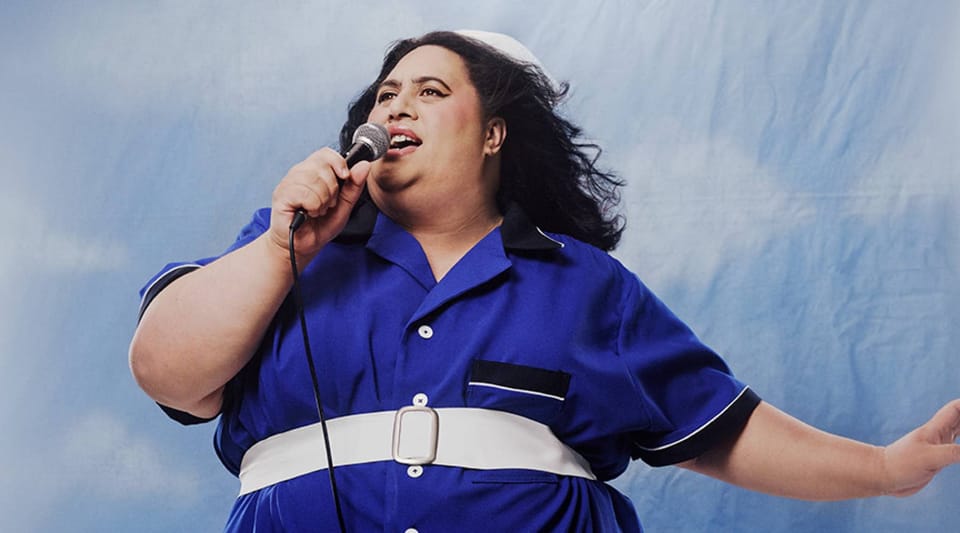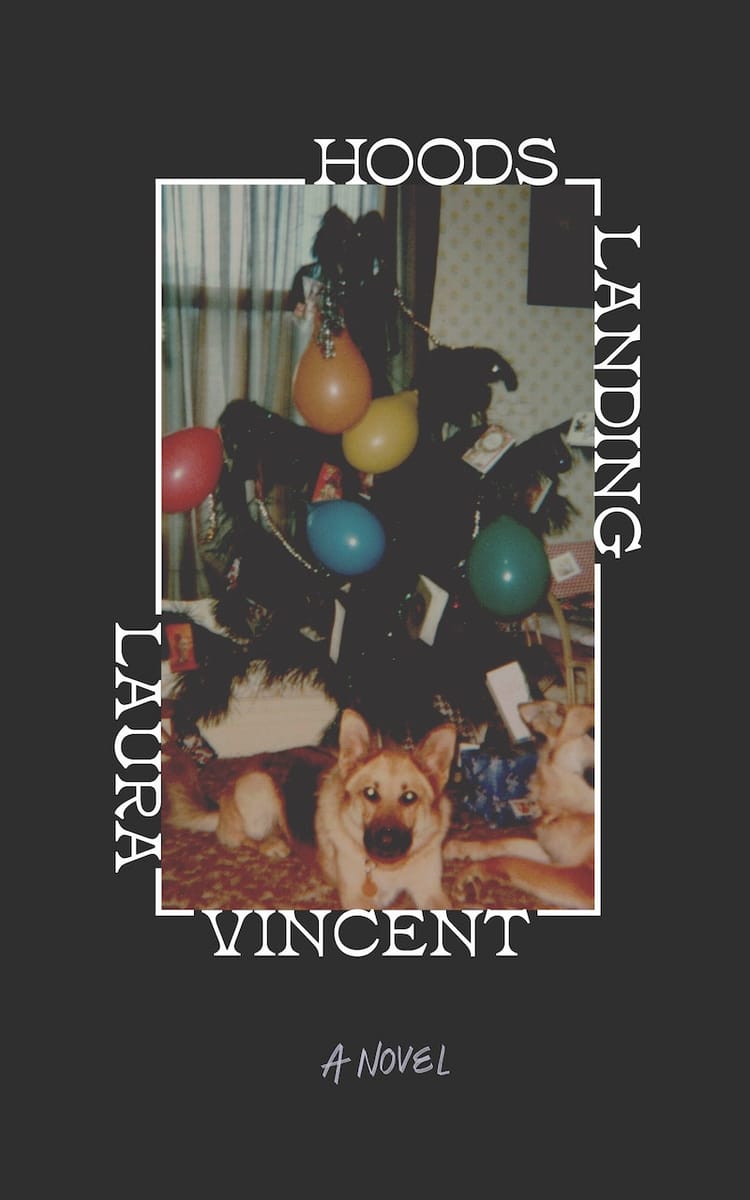Critical Corner: What Happened to Mary-Anne?

There’s nowhere quite like a New Zealand dive bar. Overhead lighting, jukeboxes older than the internet, the smell of stale beer and cigarette butts. These places hold more stories than your average library and, as such, make for a genius place to set a story. What Happened to Mary-Anne, the debut show from Brady Peeti, is nominally set in such a place.
The dive bar isn't the star of the show, though. The star is Mary-Anne (played by Peeti herself). She steps onstage in her night nurse uniform, tells us her situation – she’s the youngest of 8 conservative siblings, the caretaker of her father, is dealing with a sinfully dull boss, a god-fearing transwoman – and then gets to rocking out. What Happened to Mary-Anne? We find out, through the tested-and-true form of a solo cabaret show. (But really, it’s more rock ‘n roll than it is cabaret.)
The success of Mary-Anne, unsurprisingly, rests on Peeti’s shoulders. There’s no doubt about it: Peeti’s an absolute force onstage. She has one of those voices that makes you want to request more songs, just to see how she can handle it. She hits punchlines like she’s been doing it her whole life, but can also hold onto the more dramatic beats when she needs to. If you’ve ever seen Peeti onstage in larger ensembles, you already know she’s great, but it’s a treat to see her take centre stage and wring it for all it’s worth.
More impressive, however, is Peeti’s specificity. If you’ve been to a dive bar - or hell, even stayed in a hospital overnight - you know a woman like Mary-Anne. She’s the kind of woman who has lived a life of service, for whom the brightest lights aimed at her are the fluoros at the aforementioned dive bar - or hospital. The kind of woman who doesn’t get to sell out Q Loft, essentially. This should provide the show with a conundrum: Why, exactly, is Mary-Anne doing this show? While the story has a few gaps that, on a night where the audience is more energetic, are likely papered over with Peeti’s considerable charm and savvy song choices, she answers that question simply: Mary-Anne is doing this show because Mary-Anne deserves to be heard, and she’ll gladly take up 80 minutes of your time to do so.
Another balance that Mary-Anne has to strike as a show is the balance between rough and smooth. Ultimately, director Benjamin Kilby-Henson’s take on the show tends more towards the latter; the audience is seeing the show that Mary-Anne wants to put on, rather than the show the “real” Mary-Anne would probably put on. Indeed, Bekky Boyce’s stunning lighting is leaning more towards a rock gig in a proper venue than it is a smoky dive bar, which I imagine everybody onstage is grateful for. It’s a clever choice, and an understandable one. Manufactured edge reads as exactly that, whereas with this take, it’s Peeti’s performance that provides the roughness, the darkness, the rock and roll.
2025 is a strange time to be a queer person. I was part of Pride last year and the mood felt very different. This year, being publicly and proudly queer feels like defiance, it feels like an achievement, existence as the barometer for success. Brady Peeti’s existence onstage, as a transwoman with iron lungs and an undeniable presence, making the show that she clearly wants to make, is in itself an achievement that is worth noting. That audiences, even low energy ones like the one I saw the show with, are showering her with love is worth celebrating. That the show is actually worth the love is just the icing on the cake.
What Happened to Mary-Anne plays at Q Theatre until February 15 as part of Auckland Pride’s Pride Elevates programme.

Other Things I’ve Consumed
- I went to the premiere of Tinā this week! Anapela Polataivao is giving a tremendous performance, and everybody in the country needs to see it, as far as I’m concerned. It opens in theatres on February 27.
- I read Kelly Bishop’s The Third Gilmore Girl and while I enjoyed it, I wish I’d listened to it.
- I read Henry Henry by Allen Bratton, which is perhaps the loosest adaptation of Henry V possible, and also the gayest. Recommend.
Self-Promo
- If you’re in Tāmaki, my new show From Another Woman opens on February 27! You can read more and book tickets here.
- Also, if you’re in Tāmaki and want to learn playwriting from me specifically, there’s still a few slots for my PEP writing course that starts in March! You can find more details here.
- Finally, if you’ve got a kid and want them to do cool performance-related things during the April holidays, can I recommend checking out the National Youth Drama School? A bunch of amazing people are teaching, and I am also teaching (playwriting!).
Writing and reporting takes time, and if you want to support the amount of time it takes (and ensure that the scant amount of meaningful coverage of local art can continue), please considering supporting Dramatic Pause with a paid subscription ($8 p/m, $60 p/a) and if you can't afford a paid subscription, please share the work with your networks!





Member discussion